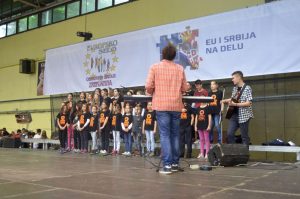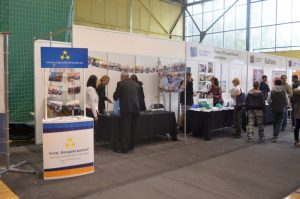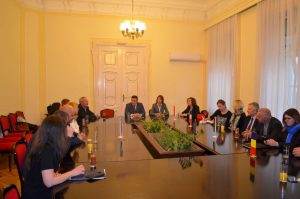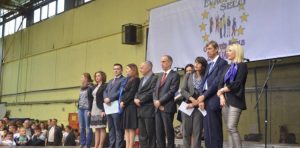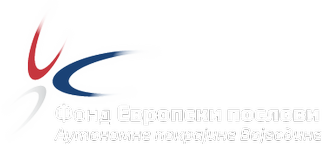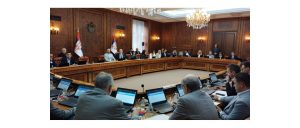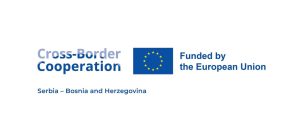“European Village” event held in Zrenjanin
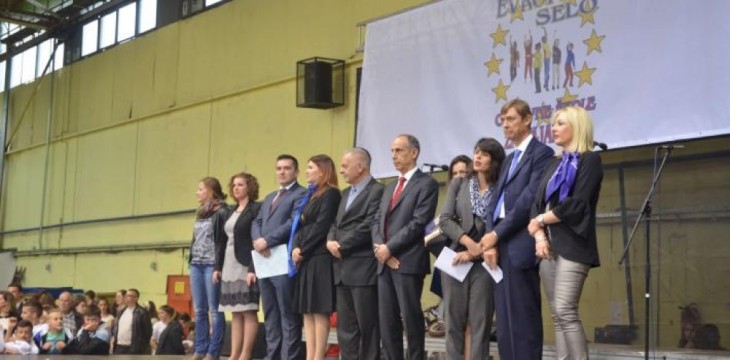
Shortly before Europe Day, the “European Village” was held for the sixth time in Zrenjanin on 5 May 2017, together with the EU Project Fair “EU and Serbia at Work”, in which the most significant ongoing projects in Vojvodina financed by the European Union were presented.
During the “European Village”, preschool and school age children presented and promoted the EU Member States, their culture, customs, tradition and interesting facts in their stalls and on the main stage. In addition, a quiz “How well do you know the European Union?”, designed to test pupils’ knowledge of the European Union, was organised.
The Delegation of the EU to the Republic of Serbia prepared awards for the winners of the competition, whereas the European Affairs Fund of AP Vojvodina also prepared awards for schools whose students won the first three places in the competition, as well as all participating schools. The European Integration Office presented certificates and gifts to the participating schools.
In addition, the representatives of the European Affairs Fund of AP Vojvodina held lectures under the title “History and Creation of the European Union” in the period from 10th to 21st April 2017. The target group were pupils from the fifth to eight grade of elementary schools on the territory of Zrenjanin Municipality. The total number of the pupils who attended the lectures was 1,315 out of 28 elementary schools in the territory of Zrenjanin Municipality, not including the teaching staff.
The “European Village” event and the EU Project Fair “EU and Serbia at Work” was opened by Jadranka Joksimović, Minister without portfolio responsible for European integration, Oskar Benedikt, Acting Head of the EU Delegation to Serbia, and Čedomir Janjić, Mayor of Zrenjanin. On behalf of the Provincial Government, Nebojša Vojnović, Under-secretary at the Provincial Secretariat for Regional Development, International Cooperation and Local Self-Government the audience, with the participation of the representative of the European Affairs Fund of AP Vojvodina. The event opening was attended by the ambassadors of Cyprus, Romania, Bulgaria, the representative of the Polish Embassy and the French Institute in Novi Sad.
Within the framework of the “European Village” event, the EU Project Fair “EU and Serbia at Work” was held, where projects from different areas of support and assistance the European Union provides for Serbia, and which are implemented in Vojvodina, were presented on 30 stands.
The “European Village” event, with accompanying events, lasted all day, and the first of them was a panel discussion dedicated to the opportunities for young people from Serbia to study for free at European universities through the EU support program, Erasmus+. After that, there was a panel discussion “European values, benefits and challenges of EU membership – the experience of Romania”. Following that, the mayor and his assistants and deputy hosted the ambassadors of Romania, Oana Cristina Popa, and of Bulgaria, Ratko Vlajkov, Joanna Budišin, Cultural Attaché of the Embassy of Poland, Aurelie Pollet, Coordinator of the branch of the French Institute in Novi Sad, Nebojša Vojnović, Under-secretary at the Provincial Secretariat for Regional Development, International Cooperation and Local Self-Government, as well as the representatives of the European Affairs Fund of AP Vojvodina. The regional education centre RCR “Banat” was visited also by Jadranka Joksimović, Minister without portfolio in charge of European integration, Oskar Benedikt, Acting Head of the EU Delegation in Serbia. In addition, there were two exhibitions on the European Union. The exhibition “All the more united EU”, set in the lobby of the City Assembly on 14 panels, provided a historical overview of the development of the European integration since the signing of the Treaty of Rome to the challenges Europe faces today. The second exhibition, set up in the “Medison” hall, as a part of the EU Project Fair, was an overview of selected photos representing success stories of cooperation between Serbia and the EU and conveyed the message of shared values in various areas of life – from education, ecology to culture.
The “European Village” project was initiated by the elementary school “Mladost (Youth)” from Tomaševac in 2012, and shortly after that, other schools joined, acknowledging its importance, educational and creative potential. The idea for the event stemmed from the wish to promote the differences between nations and countries composing modern Europe, and from the fact that a great number of children and young people never travelled to the EU MSs and did not have the opportunity to learn something more about them.


